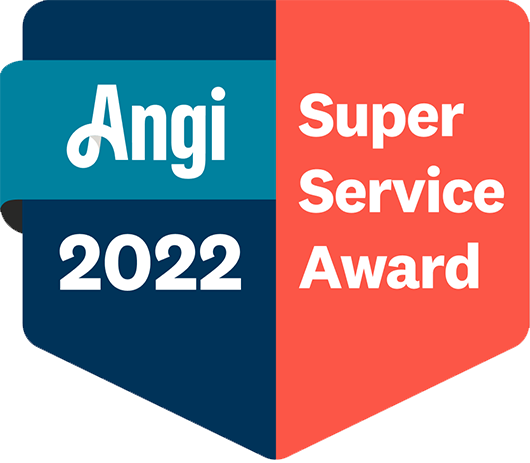Katy, Texas, is a vibrant and growing community known for its warm climate, welcoming neighborhoods, and great sense of community. But as with many areas in Texas, Katy residents need to be aware of potential risks related to their homes, particularly when it comes to water table levels. Understanding the water table and its impact on your property is crucial for maintaining the structural integrity of your home and preventing costly damages.
What Is the Water Table?
The water table is the level below the ground where the soil is completely saturated with water. This level fluctuates depending on several factors, including rainfall, drought conditions, and the local geography. In regions like Katy, where the climate can vary significantly throughout the year, the water table can rise and fall, leading to potential risks for homeowners.
Why Should Katy Homeowners Be Concerned About the Water Table?
In areas where the water table is high, the soil becomes saturated more quickly, increasing the risk of flooding, foundation problems, and other issues that can compromise the safety and value of your home. Katy’s flat terrain and clay-rich soil make it particularly susceptible to changes in the water table. When the water table rises close to the surface, it can cause several issues:
- Foundation Problems: The most significant concern for homeowners in Katy is the impact a high water table can have on their home’s foundation. The clay soil prevalent in this area is highly expansive, meaning it swells when wet and shrinks when dry. This constant movement can put a tremendous amount of pressure on your foundation, leading to cracks, shifting, and in extreme cases, structural failure.
- Basement Flooding: If your home has a basement, a high water table increases the likelihood of flooding. Water can seep through the foundation walls or floor, leading to water damage, mold growth, and other health hazards. Even homes without basements aren’t immune; water can infiltrate through the slab foundation, causing similar issues.
- Sewer and Drainage Issues: A high water table can also lead to problems with your home’s sewer system. If the water table rises above the level of your sewer lines, it can cause backups and overflows, leading to unsanitary conditions and expensive repairs. Additionally, the effectiveness of your yard’s drainage system may be compromised, resulting in standing water and erosion.
- Mold and Mildew: Excess moisture in the soil surrounding your home can create a breeding ground for mold and mildew, which can infiltrate your home and cause health problems, particularly for those with allergies or respiratory conditions. Mold remediation can be costly and time-consuming, making it essential to prevent moisture buildup in the first place.
- Landscaping Challenges: A high water table can also affect your landscaping efforts. Plants and trees may struggle to survive in overly saturated soil, leading to poor growth or even death. Additionally, standing water can create a haven for pests like mosquitoes, which can pose a health risk to your family.
How to Determine if Your Katy Home Is at Risk
Understanding whether your Katy home is at risk due to a high water table requires a bit of investigation and sometimes professional assistance. Here are some steps you can take:
- Check Local Flood Maps: The Federal Emergency Management Agency (FEMA) provides flood maps that indicate areas at risk of flooding. While these maps primarily focus on surface water flooding, they can give you an idea of whether your area is prone to high water tables.
- Soil Testing: Conducting a soil test can help determine the composition of the soil around your home and how it might react to water. Expansive soils, like those found in Katy, are more likely to cause problems when the water table rises.
- Monitor Rainfall and Water Levels: Keep an eye on local weather patterns, particularly during the rainy season. If you’ve noticed an increase in standing water in your yard or dampness in your basement, these could be signs that the water table is rising.
- Professional Assessment: Hiring a foundation specialist or geotechnical engineer to assess your property can provide you with a detailed understanding of the risks your home may face due to the water table. They can also recommend solutions to mitigate these risks, such as installing a drainage system or waterproofing your foundation.
What Can Katy Homeowners Do to Protect Their Homes?
If you discover that your home is at risk due to a high water table, there are several steps you can take to protect your property:
- Improve Drainage: Ensuring proper drainage around your home is essential. This can include grading your yard to direct water away from your foundation, installing French drains, or using a sump pump in areas prone to water accumulation.
- Waterproof Your Foundation: Applying a waterproof sealant to your foundation can help prevent water from seeping into your home. In some cases, installing a moisture barrier beneath your home may be necessary.
- Install a Sump Pump: If your home is particularly vulnerable to basement flooding, installing a sump pump can help keep water out by pumping it away from your foundation.
- Maintain Your Gutters and Downspouts: Regularly cleaning your gutters and ensuring your downspouts direct water at least 10 feet away from your home can reduce the amount of water that saturates the soil around your foundation.
- Landscape Wisely: Choose plants and trees well-suited to your local soil conditions. Consider creating rain gardens or using porous materials for walkways and patios to reduce runoff and allow water to soak into the ground gradually.
Protect Your Katy Home’s Foundation
While Katy, Texas, is a wonderful place to live, homeowners must be aware of the risks associated with a high water table. By understanding the potential dangers and taking proactive measures to protect your home, you can prevent costly damage and ensure your property remains safe and sound for years to come. If you’re unsure about the water table’s impact on your home, consulting with local experts can provide peace of mind and help you take the necessary steps to safeguard your investment.



